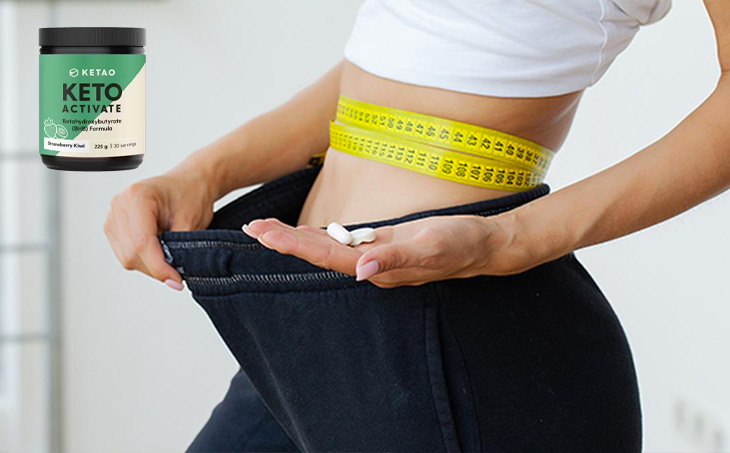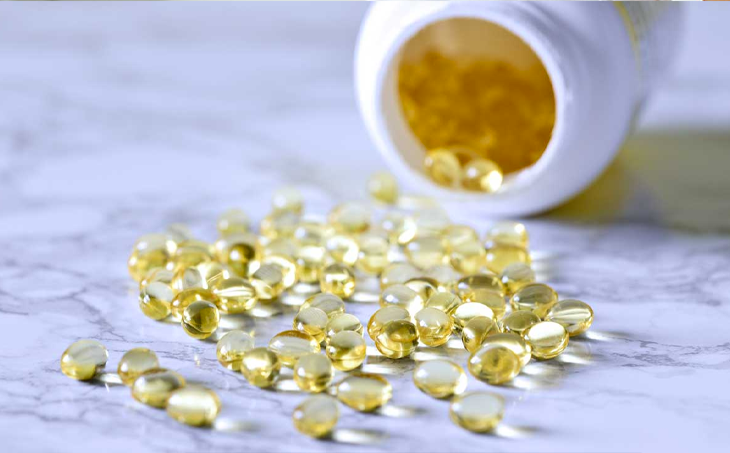20
Sep

Are you attempting the most popular diet and weight-loss trend? The keto diet is on everyone’s lips right now, especially among athletes who want to build up while losing weight. Although high in fat, it’s very restrictive, meaning there are many foods you can’t eat. So, when following the ketogenic diet, it’s very important to take the appropriate supplements to make up for the nutrients lost from foods like dairy and carbs.
These dietary products contain exogenous ketones, which are designed to help you get into and remain in ketosis. This is essentially a state where your body is burning fat for energy instead of carbs. The end goal is to lose weight and improve your overall health.
They can also help reduce the adverse effects of the “keto flu”, like fatigue and headaches. Additionally, a high-fat diet can be hard on your digestive system, causing bloating, nausea, and diarrhea. Most people who follow a keto diet lose these symptoms after they enter a state of ketosis, which is when the body starts to use fat for energy instead of carbohydrates. After four to six weeks, your body should adjust to the new diet, and by then, you can start consuming nutritional supplements.

Nowadays, you can find a wide range of supplements for a keto diet available, going from performance and energy enhancers to electrolytes, vitamins and minerals. Some of them aid in the digestion of a diet high in fat, while others speed up the body’s fat-burning process. Even a supplement exists to increase ketones over and above what the body can make on its own. This will hasten the process of getting into ketosis and make it simpler for you to enter and maintain ketosis.
Before we get to the list of supplements for a keto diet, you should remember to always read the label of the product first to confirm the ingredients used are safe. Some of them contain extra sweeteners like aspartame or sucralose, which can do more harm than good. Your best bet is to get an unflavored, unsweetened ketogenic supplement to avoid any undesired sweeteners.
Because the ketogenic diet is very restrictive, some people have trouble staying on the diet, which prevents them from entering ketosis. Exogenous ketones are dietary supplements that can assist a person reach ketosis while allowing them to relax a little bit on their dietary restrictions.
Aside from helping a person achieve ketosis faster and stay there longer, exogenous ketone products have also been found to increase athletic performance, accelerate muscle repair, and suppress hunger, all of which aid in weight loss.
The most challenging part of the keto diet is the transition. Your body is responding to the diet shift in a negative way. The “keto flu” and symptoms including headaches, muscle cramps, and weariness result from water loss and low salt, potassium, and magnesium levels.
Electrolytes are a mineral responsible for transmitting electrical charges in your body. Nerve cells communicate using these charges, which enable us to think, move, and beat our hearts. Furthermore, electrolytes control the amount of water that enters and exits the body’s cells.
Healthy hydration and this process, called fluid balance, go hand in hand. A healthy fluid balance maintains your blood moving easily through your veins, your skin moisturized and supple, and your brain poised in cerebrospinal fluid.

It has been demonstrated that the omega-3 fatty acids EPA and DHA reduce inflammation, lessen the risk of heart disease, and prevent mental deterioration. They support a healthy omega-3 to omega-6 ratio, which is especially advantageous for those following the high-fat ketogenic diet.
Medium-chain triglycerides (fatty acids) are concentrated in MCT oil, which can help increase your fat consumption faster and raise ketone levels. By increasing feelings of fullness, MCT oil can also aid with weight loss.
The body metabolizes MCTs differently than other types of fat. As opposed to long-chain fatty acids, MCTs go from the stomach to the liver without being broken down. In the liver, they’re then turned into ketones or used for energy right away.
MCTs are a great source of energy and help you feel fuller longer. They can also help you lose weight in a healthy way and improve your cholesterol levels.
Beans and rice, which are heavy in magnesium, are excluded from the ketogenic diet. However, your body requires it, so it makes sense to increase your magnesium intake.
Without magnesium, your body cannot function properly. Energy production, blood sugar regulation, blood pressure and heart rhythm control (heart health), bone health, and a host of other functions are all impacted by it.
Magnesium is also essential for good sleep and mental well-being. Look for a magnesium supplement that contains the amino acid glycine and lysine to improve bioavailability and gastrointestinal tolerance.

This vitamin is essential for strong bones, a healthy immune system, and proper cell growth. It has many other benefits as well, such as reducing the risk of cancer and heart disease.
In terms of ketogenic diets, vitamin D helps the body better absorb calcium, which is a vital component of bone health. It’s also necessary for proper muscle function and optimal fitness levels.
A lack of vitamin D can lead to fatigue, depression, and overall feelings of unwellness. If you don’t get enough sun exposure, consider taking a supplement to make up for the gaps.
Greens are a good idea to supplement with while on the keto diet because the fat-rich keto diet can make it challenging to receive your daily allowance of plant-based nutrients. The greatest way to obtain the pure nutrition that green veggies offer is with a greens powder supplement.